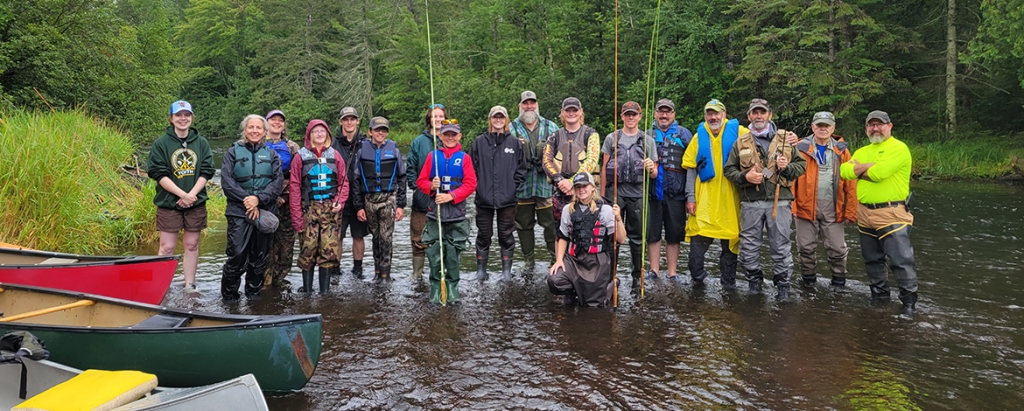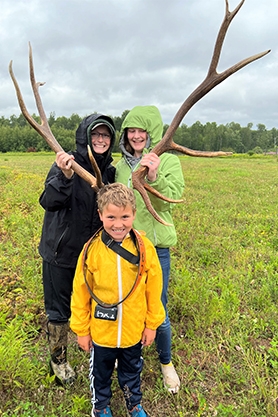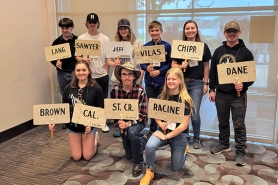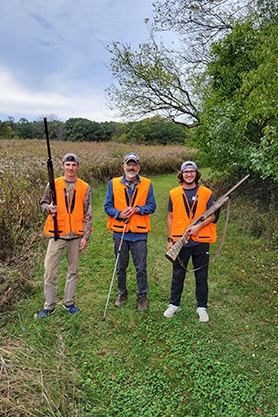Wisconsin Youth Conservation Congress
Wisconsin Conservation Congress
The Youth Conservation Congress (YCC) is an initiative by the Wisconsin Conservation Congress (WCC) and was established at the request of the Natural Resources Board (NRB). This group functions under the umbrella of the Wisconsin Conservation Congress. The purpose is to give students a voice and instill a sense of ownership, civic pride and advocacy in these future stewards of our state’s natural resources.
The goal of the program is to effectively engage, educate and involve youth in the management and protection of our natural resources and foster a conservation ethic through participation in the Wisconsin Youth Conservation Congress.
Join The YCC
Wisconsin students interested in the outdoors are invited to join the Youth Conservation Congress. This statewide youth program is designed to grow and develop future conservation leaders across the state. The Youth Conservation Congress (YCC) is a student extension of the Wisconsin Conservation Congress.
The purpose of the YCC program is to give young people a voice and instill a sense of ownership, civic pride and advocacy for Wisconsin's natural resources. The YCC strives to effectively engage, educate, and involve youth in the management and protection of our natural resources and foster a conservation ethic through participation in the program.
with elk antlers and an elk radio telemetry
collar. / Photo credit: Tashina Peplinski
The YCC program offers opportunities for students from all backgrounds, including seasoned outdoor enthusiasts and novices alike. Although the program is best suited for high school students, younger individuals are welcome to apply.
YCC student delegates are exposed to various aspects of natural resource management and have access to professionals in those fields. Students also receive real-world experience through a variety of service-learning opportunities.
By joining, members gain an understanding of the process for how Wisconsin’s natural resource policy is determined, including the role and history of the Wisconsin Conservation Congress – the state’s statutorily recognized citizen advisory body.
Participants will strengthen valuable skills such as problem-solving, effective communication, teamwork, and leadership competencies through working with other YCC delegates, WCC delegates and DNR staff while building an appreciation for the many facets of resource management.
The YCC program mirrors the Conservation Congress’s focus on county level initiatives. County Congress members serve as mentors and as a point of local contact for the YCC delegates. Youth who are interested in the program should contact Kyle Zenz with questions about the YCC and how to apply for the program.
Newsletters
Newsletters provide the most current information about the Youth Conservation Congress. Check out the archives to learn about upcoming and past programming.
YCC Resources
for a picture holding signs indicating the
Wisconsin county that they live in. / Photo
credit: Kyle Zenz
Resources for current YCC delegates and mentors can be found below.
Mentor Resources
All youth involved with the Youth Conservation Congress (YCC) will be matched with a current Wisconsin Conservation Congress (WCC) delegate from their county or a nearby county.
participate in a mentored learn to hunt
pheasant program. / Photo credit: Kyle Zenz
The purpose of the mentor relationship is 3 fold.
- To help youth learn more about the role and history of the WCC, the importance of citizen advocacy for conservation in Wisconsin, to engage in policy making and to help grow the next generation of conservation leaders in Wisconsin through participation in the WCC.
- To continue to build sporting heritage in Wisconsin through hands on educational opportunities (hunting, fishing, trapping, silent sports, etc.). Mentors will help train youth to be safe, ethical and responsible.
- To facilitate opportunities for youth to gain field experience. Mentors will help youth learn more about wildlife, fisheries, forestry, air, water and recreation resources in the state. This is accomplished by youth volunteering with the DNR, exploring career opportunities, job shadowing, connecting with local conservation groups and learning from local leaders.




